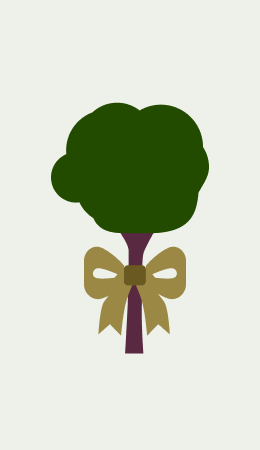Your tree godchild – a social wonder

Dear tree friends,
Trees as "giants" of the plant world belong to the flora in standard categorization, whereas animals belong to the fauna. A tree is categorized as a species by the structure of its roots, trunk and crown. But what exactly distinguishes flora from fauna? The latest research results show that many boundaries become blurred, upon closer inspection. For plants, and especially trees, possess their own form of social intelligence: they communicate with each other, they support each other and yes, they even react to touch.
Let's take a look at beech trees - they are particularly social! In North America and Eurasia in particular, beech trees and their subspecies (over 10) are among the most common tree species. They can be quickly recognized by their smooth trunks and slightly toothed leaves, and also by their presence in hordes. Beech trees thrive best when they are together - they use scents to warn each other of invading bark beetle hordes and support each other in wind and weather. But what is most amazing is that they have implemented a real social welfare system! Beech trees recognize their conspecifics and can distinguish them from other species. If a tree sister is ill or undersupplied with nutrients due to a poor location or attacked roots, the strong sisters step in - and simply provide for the weak tree until it is better. This works via the Internet of Trees: the fungal network through which the green giants communicate with each other and which connects their roots and brings them into exchange. These trees are so miraculous, that tree stumps were found to still be alive decades after being cut down, without trunks or leaves, in other words virtually without any food supply. The reason they survived, was because of the beech family, which continued to supply the beech stumps with nourishment through the roots.
Experiments have also shown that plants can remember and learn to react to changing environments. It has been found that plants can retain a memory for up to 6 months, when they have learned something. To do this, plants were thrown down from a height and caught at the bottom with a cushion. During such a fall, plants normally contract in a shock-like manner to protect themselves - but this costs valuable energy. After the plants learned that they were falling softly, i.e. that there was no danger, they stopped contracting and remembered what they had learned for half a year after the experiment. So just because we humans think neuronally with the brain, it doesn't mean that plants don't have their own form of intelligence! And for them, not having a brain is downright essential for survival: If a cow bites off a blade of grass, it can only continue to grow because it has not centralised all its livelihood in one organ. Plants think in a completely different way than we do.
Plant feeling is just as interesting: Experiments have shown that plants notice when they are touched - and they respond with stronger, more robust growth. Just as a child needs love, care and companionship, so does a plant. And even if some tree varieties, such as oaks, can thrive as solitary creatures, they are always dependent on their environment, are connected to all living things via their roots and live in symbiotic exchange with countless microorganisms. If this environment suddenly becomes hostile to them due to climate change or dry summers and prevents them from thriving, they migrate to other regions just like we humans do. They have to adapt to new conditions on site, compete with native species and find their place in an environment in which they are unwanted and which is alien to them. Of course, this happens much, much more slowly than in the human world - but in principle, tree species have their own cultural preferences and ways of communicating that they have cultivated and practiced over centuries.
A great further read here is the book "The Secret Life of Trees" or "Nature's Secret Network" by forester and author Peter Wohlleben - here he explains scientific findings on the topic of the forest ecosystem in a vivid way and repeatedly points out how much of the miraculous creature - the tree - we still do not understand.
So a tree is not only a sustainable gift or a great investment! By planting a tree, you give a living being the chance to grow within and with a community - and feed off the CO2 that harms our climate.
So give your tree godchild a life today!
From trees with love,
Your Grow My Tree Team
write a comment
Comments are approved before posting.








